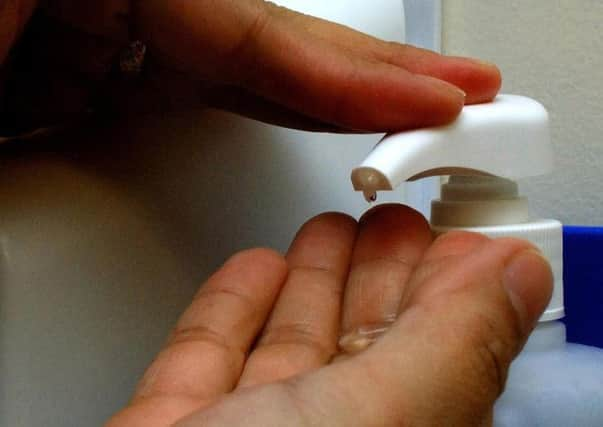Warning issued over winter vomiting bug spread


Norovirus, sometimes known as the “winter vomiting disease” because it usually occurs during the winter months, often starts to appear in the autumn and peak during January.
It is highly contagious and the most frequent cause of infectious gastroenteritis in England and Wales. Typical symptoms are vomiting and diarrhoea.
Advertisement
Hide AdAdvertisement
Hide AdThe sickness and diarrhoea can be distressing and you can also feel unwell with a temperature, headache, aching limbs and stomach cramps.
It can be very unpleasant while you have it. People suffering will feel very unwell initially but will usually improve quickly as the symptoms settle.
It is a highly infectious disease, affecting people of all ages, with symptoms usually lasting anywhere between a few hours to a couple of days. Most people do recover quickly.
Dr Mike Ions, Chief Clinical Officer of NHS East Lancashire Clinical Commissioning Group, said: “People should ensure that they thoroughly wash their hands after using the toilet, and ensure that any contaminated surfaces are thoroughly disinfected after an episode of illness.
Advertisement
Hide AdAdvertisement
Hide Ad“Food preparation should also be avoided until three days after symptoms have disappeared.
“Unfortunately there is no specific treatment for Norovirus apart from letting the illness run its course, therefore it is important to drink plenty of fluids to prevent dehydration, especially in the very young or elderly”.
People suffering do not usually need to consult their GP unless symptoms are very bad or continue beyond 48 hours.
The NHS Choices website (www.nhs.uk) can provide further advice. You can also call the NHS 111 helpline if symptoms do not quickly subside or you have additional concerns.